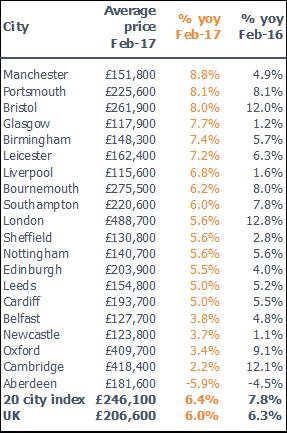Confidence of property investors is high
A new report has indicated that confidence regarding investing in property is continuing to grow, with many buy-to-let landlords predicting a good year ahead for the UK housing market.
The survey from Shawbrook Bank discovered that 81% of landlords feel confident about the performance of their property portfolios in the coming year. Much of this optimism stems from improvements in the lending environment.
Demand
Tenant demand remains strong, with 30% of landlords questioned seeing an increase in the number of renters during the second half of 2016. In addition, half of all buy-to-let landlords have seen increases in income during the last twelve months.
It is also good news for the buy-to-let sector, with 66% of respondents saying that they plan on purchasing an extra buy-to-let property during the opening six months of 2017. This comes despite the numerous tax alterations and continuing uncertainty surrounding Brexit.

Confidence of property investors is high
Optimism
Karen Bennett, Managing Director of commercial mortgages at Shawbrook Bank, said: ‘Despite uncertainty surrounding Brexit, landlords are still optimistic about the performance of their portfolios. With Brexit negotiations officially underway, as well as recent changes to housing policy, it is encouraging that the market doesn’t seem to be slowing.’[1]
‘Following last year’s tax changes it’s clear that investors are still getting a feel for how the changes will affect them. It is also evident that landlords have made an effort to understand how these new policies affect they way they do business, although the fact that 19% of those asked have little or no understanding of these changes means there is still work to be done,’ she added.[1]
[1] https://www.propertyinvestortoday.co.uk/breaking-news/2017/4/property-investor-confidence-runs-high





